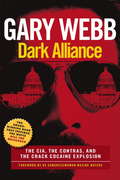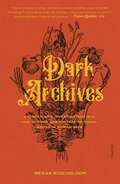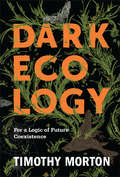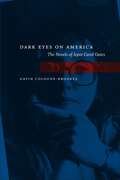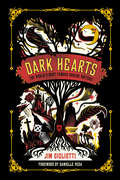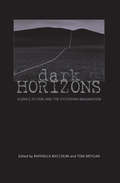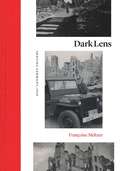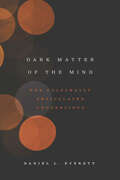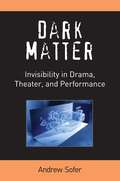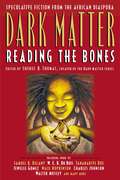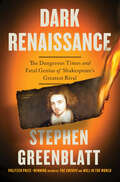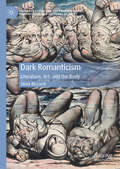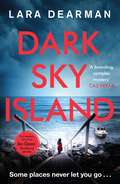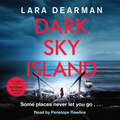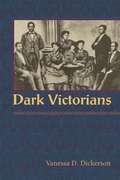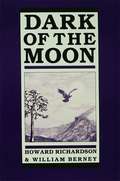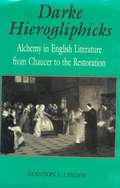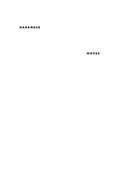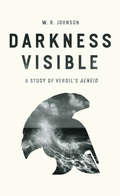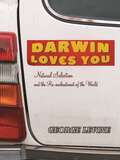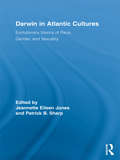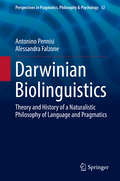- Table View
- List View
Dark Alliance: The CIA, the Contras, and the Cocaine Explosion
by Gary WebbIn 1996, Pulitzer Prize-winning journalist GARY WEBB (1955-2004) wrote a shocking series of articles for the San Jose Mercury News exposing the CIA's link to Nicaraguan cocaine smuggled into the US by the Contras, which had fueled the widespread crack epidemic that swept through urban areas. Webb's bold, controversial reporting was the target of a famously vicious media backlash that ended his career as a mainstream journalist. When Webb persisted with his research and compiled his findings in the bookDark Alliance, some of the same publications that had vilified Webb for his series retracted their criticism and praised him for having the courage to tell the truth about one of the worst official abuses in our nation's history. Others, including his own former newspaper and the New York Times, continued to treat him like an outlaw for the brilliant and courageous work he'd done. Webb's death on December 10, 2004, at the age of 49, was determined to be a suicide.
Dark Archives: A Librarian's Investigation into the Science and History of Books Bound in Human Skin
by Megan RosenbloomOn bookshelves around the world, surrounded by ordinary books bound in paper and leather, rest other volumes of a distinctly strange and grisly sort: those bound in human skin. Would you know one if you held it in your hand?In Dark Archives, Megan Rosenbloom seeks out the historic and scientific truths behind anthropodermic bibliopegy—the practice of binding books in this most intimate covering. Dozens of such books live on in the world’s most famous libraries and museums. Dark Archives exhumes their origins and brings to life the doctors, murderers, innocents, and indigents whose lives are sewn together in this disquieting collection. Along the way, Rosenbloom tells the story of how her team of scientists, curators, and librarians test rumored anthropodermic books, untangling the myths around their creation and reckoning with the ethics of their custodianship. A librarian and journalist, Rosenbloom is a member of The Order of the Good Death and a cofounder of their Death Salon, a community that encourages conversations, scholarship, and art about mortality and mourning. In Dark Archives—captivating and macabre in all the right ways—she has crafted a narrative that is equal parts detective work, academic intrigue, history, and medical curiosity: a book as rare and thrilling as its subject.
Dark Ecology: For a Logic of Future Coexistence (The Wellek Library Lectures)
by Timothy MortonTimothy Morton argues that ecological awareness in the present Anthropocene era takes the form of a strange loop or Möbius strip, twisted to have only one side. Deckard travels this oedipal path in Blade Runner (1982) when he learns that he might be the enemy he has been ordered to pursue. Ecological awareness takes this shape because ecological phenomena have a loop form that is also fundamental to the structure of how things are.The logistics of agricultural society resulted in global warming and hardwired dangerous ideas about life-forms into the human mind. Dark ecology puts us in an uncanny position of radical self-knowledge, illuminating our place in the biosphere and our belonging to a species in a sense that is far less obvious than we like to think. Morton explores the logical foundations of the ecological crisis, which is suffused with the melancholy and negativity of coexistence yet evolving, as we explore its loop form, into something playful, anarchic, and comedic. His work is a skilled fusion of humanities and scientific scholarship, incorporating the theories and findings of philosophy, anthropology, literature, ecology, biology, and physics. Morton hopes to reestablish our ties to nonhuman beings and to help us rediscover the playfulness and joy that can brighten the dark, strange loop we traverse.
Dark Eyes on America: The Novels of Joyce Carol Oates
by Gavin Cologne-Brookes"A sound and engaging book that creates a balanced overview of Oates's career while tackling the question of her role in the wider community." -- Modern Fiction StudiesJoyce Carol Oates is America's most extraordinary and prolific woman of letters. In Dark Eyes on America, Gavin Cologne-Brookes illuminates the vision of this remarkable master of her craft, finding evidence in her novels of an evolving consciousness that ultimately forgoes abstract introspection in favor of a more practical approach to art as a tool for understanding both personal and social challenges. With her clear-eyed perception of human behavior, Oates has for decades offered unhesitating explorations of genre, topic, and style -- making her an inevitable if somewhat elusive subject for critical assessment. Cologne-Brookes's conversations and correspondence with Oates, his close textual study of her novels, and abundant references to her essays, stories, poetry, and plays result in a work that critically synthesizes the layers of her writing. This comprehensive yet accessible study offers an essential analysis of one of the twentieth century's most significant writers. "A thoughtful, thorough study which... encourages readers to re-examine Oates's novels within a philosophical context" -- Journal of the American Studies Association of Texas.
Dark Hearts: The World's Most Famous Horror Writers
by Jim GigliottiSometimes the truth can be much scarier than fiction. And this collection is no exception. Uncover what fascinated and frightened some of our favorite horror writers of all time.Who are the people who make our hearts race and our minds spin? Why are they so good at making us fear what goes bump in the night? What are the stories behind the writers who give us goosebumps? Dark Hearts is a collection of fourteen short biographies of the world's best-known horror writers, including Mary Shelley, Shirley Jackson, Neil Gaiman, R. L. Stine, Stephen King, Bram Stoker, and others. Their stories are gathered in this beautiful, gift-able book that is perfect for any horror fan.
Dark Horizons: Science Fiction and the Dystopian Imagination
by Raffaella Baccolini Tom MoylanFirst published in 2003. Routledge is an imprint of Taylor & Francis, an informa company.
Dark Lens: Imaging Germany, 1945
by Françoise MeltzerThe ruins of war have long held the power to stupefy and appall. Can such ruins ever be persuasively depicted and comprehended? Can images of them force us to identify with the suffering of the enemy and raise uncomfortable questions about forgiveness and revenge? Françoise Meltzer explores those questions in Dark Lens, which uses the images of war ruins in Nazi Germany to investigate problems of aestheticization, the representation of catastrophe, and the targeting of civilians in war. Through texts that give accounts of bombed-out towns in Germany in the last years of the war, painters’ attempts to depict the destruction, and her own mother’s photographs taken in Berlin and other cities in 1945, Meltzer asks if any medium offers a direct experience of war ruins for the viewer. Ultimately, she concludes that while the viewer cannot help reimaging the devastation through the lenses of history, aestheticization, or voyeurism, these images at least allow us to approach the reality of ruins and grasp the larger issue of targeting civilians in modern warfare for what it is. Refreshingly accessible and deeply personal, Dark Lens is a compelling look at the role images play in constructing memories of war.
Dark Matter of the Mind: The Culturally Articulated Unconscious
by Daniel L. EverettIs it in our nature to be altruistic, or evil, to make art, use tools, or create language? Is it in our nature to think in any particular way? For Daniel L. Everett, the answer is a resounding no: it isn't in our nature to do any of these things because human nature does not exist--at least not as we usually think of it. Flying in the face of major trends in Evolutionary Psychology and related fields, he offers a provocative and compelling argument in this book that the only thing humans are hardwired for is freedom: freedom from evolutionary instinct and freedom to adapt to a variety of environmental and cultural contexts. Everett sketches a blank-slate picture of human cognition that focuses not on what is in the mind but, rather, what the mind is in--namely, culture. He draws on years of field research among the Amazonian people of the Pirahã in order to carefully scrutinize various theories of cognitive instinct, including Noam Chomsky's foundational concept of universal grammar, Freud's notions of unconscious forces, Adolf Bastian's psychic unity of mankind, and works on massive modularity by evolutionary psychologists such as Leda Cosmides, John Tooby, Jerry Fodor, and Steven Pinker. Illuminating unique characteristics of the Pirahã language, he demonstrates just how differently various cultures can make us think and how vital culture is to our cognitive flexibility. Outlining the ways culture and individual psychology operate symbiotically, he posits a Buddhist-like conception of the cultural self as a set of experiences united by various apperceptions, episodic memories, ranked values, knowledge structures, and social roles--and not, in any shape or form, biological instinct. The result is fascinating portrait of the "dark matter of the mind," one that shows that our greatest evolutionary adaptation is adaptability itself.
Dark Matter: Invisibility In Drama, Theater, And Performance
by Andrew SoferDark Matter maps the invisible dimension of theater whose effects are felt everywhere in performance. Examining phenomena such as hallucination, offstage character, offstage action, sexuality, masking, technology, and trauma, Andrew Sofer engagingly illuminates the invisible in different periods of postclassical western theater and drama. He reveals how the invisible continually structures and focuses an audience’s theatrical experience, whether it’s black magic in Doctor Faustus, offstage sex in A Midsummer Night’s Dream, masked women in The Rover, self-consuming bodies in Suddenly Last Summer, or surveillance technology in The Archbishop’s Ceiling. Each discussion pinpoints new and striking facets of drama and performance that escape sight. Taken together, Sofer’s lively case studies illuminate how dark matter is woven into the very fabric of theatrical representation. Written in an accessible style and grounded in theater studies but interdisciplinary by design, Dark Matter will appeal to theater and performance scholars, literary critics, students, and theater practitioners, particularly playwrights and directors.
Dark Matter: Reading the Bones
by Sheree R. ThomasThis sequel to the award-winning Dark Matter anthology features another extraordinary collection of speculative fiction by black writers. Like its groundbreaking predecessor, DARK MATTER: Reading the Bones, introduces black SF, fantasy, and speculative fiction writers to readers who may not have realized the depth and breadth of these works. This anthology includes original short fiction and previously published works from Charles Johnson, the National BookAward-winning author of Middle Passage; Tananarive Due; Walter Mosley; W.E.B. DuBois; Samuel R. Delaney; Nalo Hopkinson; Wanda Coleman; and many more. Containing approximately 30 stories, ranging from the early part of the 20th century through the most cutting-edge work of today, this is a powerful collection that will appeal to the culturally diverse audience of science fiction readers.
Dark Renaissance: The Dangerous Times and Fatal Genius of Shakespeare's Greatest Rival
by Stephen GreenblattPoor boy. Spy. Transgressor. Genius. In repressive Elizabethan England, artists are frightened into dull conventionality; foreigners are suspect; popular entertainment largely consists of coarse spectacles, animal fights, and hangings. Into this crude world of government censorship and religious authoritarianism comes an ambitious cobbler’s son from Canterbury with a daring desire to be known—and an uncanny ear for Latin poetry. A torment for most schoolboys, yet for a few, like Christopher Marlowe, a secret portal to beauty, visionary imagination, transgressive desire, and dangerous skepticism. What Marlowe seizes in his rare opportunity for a classical education, and what he does with it, brings about a spectacular explosion of English literature, language, and culture. His astonishing literary success will, in turn, nourish the talent of a collaborator and rival, William Shakespeare. Dark Renaissance illuminates both Marlowe’s times and the origins and significance of his work—from his erotic translations of Ovid to his portrayal of unfettered ambition in a triumphant Tamburlaine to Doctor Faustus, his unforgettable masterpiece about making a pact with the devil in exchange for knowledge. Introducing us to Marlowe’s transgressive genius in the form of a thrilling page-turner, Stephen Greenblatt brings a penetrating understanding of the literary work to reveal the inner world of the author, bringing to life a homosexual atheist who was tormented by his own compromises, who refused to toe the party line, and who was murdered just when he had found love. Meanwhile, he explores how the people Marlowe knew, and the transformations they wrought, gave birth to the economic, scientific, and cultural power of the modern world including Faustian bargains with which we reckon still.
Dark Romanticism: Literature, Art, and the Body (Palgrave Studies in the Enlightenment, Romanticism and Cultures of Print)
by Silvia RiccardiThis book explores the dark regions of Romantic imagination in late eighteenth- and early nineteenth-century literature and art. It uncovers the palpable and pleasing anxiety about the human body in the works of Henry Fuseli, William Blake, and Mary Shelley, focusing on the negotiations of pleasure and pain, life and death, beauty and monstrosity. Each of the works examined revolves in some manner around the breakdown of an idealized body in order to illuminate the transition from organic to fragmented form. This approach involves reorienting conventional accounts of Romanticism around the emergence of a visual paradigm. Engaging with cultures of print, aesthetic discourse, anatomical art, as well as natural historical knowledge circulating in England at the turn of the century, Dark Romanticism cultivates visual literacy and argues that literary and pictorial elements are inseparable when imagination is at work.
Dark Scenes from Damaged Earth: The Gothic Anthropocene
by Justin D. Edwards Rune Graulund Johan HöglundAn urgent volume of essays engages the Gothic to advance important perspectives on our geological era What can the Gothic teach us about our current geological era? More than just spooky, moonlit castles and morbid graveyards, the Gothic represents a vibrant, emergent perspective on the Anthropocene. In this volume, more than a dozen scholars move beyond longstanding perspectives on the Anthropocene—such as science fiction and apocalyptic narratives—to show that the Gothic offers a unique (and dark) interpretation of events like climate change, diminished ecosystems, and mass extinction.Embracing pop cultural phenomena like True Detective, Jaws, and Twin Peaks, as well as topics from the New Weird and prehistoric shark fiction to ruin porn and the &“monstroscene,&” Dark Scenes from Damaged Earth demonstrates the continuing vitality of the Gothic while opening important new paths of inquiry. These essays map a genealogy of the Gothic while providing fresh perspectives on the ongoing climate chaos, the North/South divide, issues of racialization, dark ecology, questions surrounding environmental justice, and much more.Contributors: Fred Botting, Kingston U; Timothy Clark, U of Durham; Rebecca Duncan, Linnaeus U; Michael Fuchs, U of Oldenburg, Germany; Esthie Hugo, U of Warwick; Dawn Keetley, Lehigh U; Laura R. Kremmel, South Dakota School of Mines and Technology; Timothy Morton, Rice U; Barry Murnane, U of Oxford; Jennifer Schell, U of Alaska Fairbanks; Lisa M. Vetere, Monmouth U; Sara Wasson, Lancaster U; Jeffrey Andrew Weinstock, Central Michigan U.
Dark Sky Island: A chilling mystery set on the Channel Islands (Jennifer Dorey)
by Lara Dearman'A brooding, complex mystery' CAZ FREAR'A deeply atmospheric and gripping thriller with a wonderful sense of place' ROZ WATKINSThere's a killer on the island - and someone knows who...When human bones are found in a remote bay in the Channel Islands, DCI Michael Gilbert is plunged into an investigation to find out who they belong to. The remains are decades old - but after another body is discovered, the police realise they could be dealing with a serial killer. Journalist Jennifer Dorey is desperate for answers, driven by a secret of her own - but it soon becomes clear that nobody on the island is quite what they seem. Will anyone tell the truth before it's too late? Or will the killer on the island strike again...?A gripping thriller, perfect for fans of Ann Cleeves and Peter May.
Dark Sky Island: A chilling mystery set on the Channel Islands (Jennifer Dorey)
by Lara Dearman'A brooding, complex mystery' CAZ FREAR'A deeply atmospheric and gripping thriller with a wonderful sense of place' ROZ WATKINSThere's a killer on the island - and someone knows who...When human bones are found in a remote bay in the Channel Islands, DCI Michael Gilbert is plunged into an investigation to find out who they belong to. The remains are decades old - but after another body is discovered, the police realise they could be dealing with a serial killer. Journalist Jennifer Dorey is desperate for answers, driven by a secret of her own - but it soon becomes clear that nobody on the island is quite what they seem. Will anyone tell the truth before it's too late? Or will the killer on the island strike again...?A gripping thriller, perfect for fans of Ann Cleeves and Peter May.
Dark Victorians
by Vanessa D. DickersonDark Victorians illuminates the cross-cultural influences between white Britons and black Americans during the Victorian age. In carefully analyzing literature and travel narratives by Ida B. Wells, Harriet Martineau, Charles Dickens, Frederick Douglass, Thomas Carlyle, W.E.B. Du Bois, and others, Vanessa D. Dickerson reveals the profound political, racial, and rhetorical exchanges between the groups. From the nineteenth-century black nationalist David Walker, who urged emigrating African Americans to turn to England, to the twentieth-century writer Maya Angelou, who recalls how those she knew in her childhood aspired to Victorian ideas of conduct, black Americans have consistently embraced Victorian England. At a time when scholars of black studies are exploring the relations between diasporic blacks, and postcolonialists are taking imperialism to task, Dickerson considers how Britons negotiated their support of African Americans with the controlling policies they used to govern a growing empire of often dark-skinned peoples, and how philanthropic and abolitionist Victorian discourses influenced black identity, prejudice, and racism in America.
Dark and Stormy Rides Again: The Best from the Bulwer-Lytton Fiction Contest
by Scott RiceThe Bulwer-Lytton Fiction Contest, named in honor of the Victorian literary has-been Edward Bulwer-Lytton, is the world-famous competition that seeks to find the most atrocious opening sentence to a hypothetical lousy novel. Dark and Stormy Rides Again proves that there are still committed writers out there plumbing their inner souls for truly bad writing. Choice entries include: * "There was considerable consternation among the cats in the coliseum when it was learned that the tigers were taking the lion's share of the prophets." * "Those alarm things that make a real loud honking kind of noise were going off as Captain James Hurley "stared at the screen that showed him the stuff that was outside in space while he sat in the chair that the captain sits in, and slowly reached for the control panel for the thing that makes the ship go real fast."
Dark of the Moon
by Howard Richardson William BerneyAs the tale unfolds, a witch boy tarries in a mountain community in love with a beautiful girl named Barbara Allen. The superstitious townspeople resent their happiness and their subsequent meddling ends in violence and tragedy. This play was proclaimed a Broadway hit.
Darke Hierogliphicks: Alchemy in English Literature from Chaucer to the Restoration
by Stanton J. LindenThe literary influence of alchemy and hermeticism in the work of most medieval and early modern authors has been overlooked. Stanton provides the first comprehensive examination of this influence on English literature from the late middle Ages.
Darkness Moves
by Henri MichauxHenri Michaux defies common critical definition. Critics have compared his work to such diverse artists as Kafka, Goya, Swift, Klee, and Beckett. Allen Ginsberg called Michaux "genius," and Jorge Luis Borges wrote that Michaux's work "is without equal in the literature of our time." This anthology contains substantial selections from almost all of Michaux's major works, most never before published in English, and allows readers to explore the haunting verbal and pictorial landscape of a twentieth-century visionary.
Darkness Visible: A Study of Vergil's "Aeneid"
by W.R. JohnsonOne of the best books ever written on one of humanity’s greatest epics, W. R. Johnson’s classic study of Vergil’s Aeneid challenges centuries of received wisdom. Johnson rejects the political and historical reading of the epic as a record of the glorious prehistory of Rome and instead foregrounds Vergil’s enigmatic style and questioning of the heroic myths. With an approach to the text that is both grounded in scholarship and intensely personal, and in a style both rhetorically elegant and passionate, Johnson offers readings of specific passages that are nuanced and suggestive as he focuses on the “somber and nourishing fictions” in Vergil’s poem. A timeless work of scholarship, Darkness Visible will enthrall classicists as well as students and scholars of the history of criticism—specifically the way in which politics influence modern readings of the classics—and of poetry and literature.
Darwin Loves You: Natural Selection and the Re-enchantment of the World
by George LevineJesus and Darwin do battle on car bumpers across America. Medallions of fish symbolizing Jesus are answered by ones of amphibians stamped "Darwin," and stickers proclaiming "Jesus Loves You" are countered by "Darwin Loves You." The bumper sticker debate might be trivial and the pronouncement that "Darwin Loves You" may seem merely ironic, but George Levine insists that the message contains an unintended truth. In fact, he argues, we can read it straight. Darwin, Levine shows, saw a world from which his theory had banished transcendence as still lovable and enchanted, and we can see it like that too--if we look at his writings and life in a new way. Although Darwin could find sublimity even in ants or worms, the word "Darwinian" has largely been taken to signify a disenchanted world driven by chance and heartless competition. Countering the pervasive view that the facts of Darwin's world must lead to a disenchanting vision of it, Levine shows that Darwin's ideas and the language of his books offer an alternative form of enchantment, a world rich with meaning and value, and more wonderful and beautiful than ever before. Without minimizing or sentimentalizing the harsh qualities of life governed by natural selection, and without deifying Darwin, Levine makes a moving case for an enchanted secularism--a commitment to the value of the natural world and the human striving to understand it.
Darwin in Atlantic Cultures: Evolutionary Visions of Race, Gender, and Sexuality
by Patrick B. Sharp Jeannette Eileen JonesThis collection is an interdisciplinary edited volume that examines the circulation of Darwinian ideas in the Atlantic space as they impacted systems of Western thought and culture. Specifically, the book explores the influence of the principle tenets of Darwinism -- such as the theory of evolution, the ape-man theory of human origins, and the principle of sexual selection -- on established transatlantic intellectual traditions and cultural practices. In doing so, it pays particular attention to how Darwinism reconfigured discourses on race, gender, and sexuality in a transnational context. Covering the period from the publication of The Origin of Species (1859) to 1933, when the Nazis (National Socialist Party) took power in Germany, the essays demonstrate the dissemination of Darwinian thought in the Western world in an unprecedented commerce of ideas not seen since the Protestant Reformation. Learned societies, literary groups, lyceums, and churches among other sites for public discourse sponsored lectures on the implications of Darwin’s theory of evolution for understanding the very ontological codes by which individuals ordered and made sense of their lives. Collectively, these gatherings reflected and constituted what the contributing scholars to this volume view as the discursive power of the cultural politics of Darwinism.
Darwin's Plots
by Gillian BeerGillian Beer's classic Darwin's Plots, one of the most influential works of literary criticism and cultural history of the last quarter century, is here reissued in an updated edition to coincide with the anniversary of Darwin's birth and of the publication of The Origin of Species. Its focus on how writers, including George Eliot, Charles Kingsley and Thomas Hardy, responded to Darwin, Aos discoveries and to his innovations in scientific language continues to open up new approaches to Darwin's thought and to its effects in the culture of his contemporaries. This third edition includes an important new essay that investigates Darwin's concern with consciousness across all forms of organic life. It demonstrates how this fascination persisted throughout his career and affected his methods and discoveries. With an updated bibliography reflecting recent work in the field, this book will retain its place at the heart of Victorian studies
Darwinian Biolinguistics: Theory and History of a Naturalistic Philosophy of Language and Pragmatics (Perspectives in Pragmatics, Philosophy & Psychology #12)
by Antonino Pennisi Alessandra FalzoneThis book proposes a radically evolutionary approach to biolinguistics that consists in considering human language as a form of species-specific intelligence entirely embodied in the corporeal structures of Homo sapiens. The book starts with a historical reconstruction of two opposing biolinguistic models: the Chomskian Biolinguistic Model (CBM) and the Darwinian Biolinguistic Model (DBM). The second part compares the two models and develops into a complete reconsideration of the traditional biolinguistic issues in an evolutionary perspective, highlighting their potential influence on the paradigm of biologically oriented cognitive science. The third part formulates the philosophical, evolutionary and experimental basis of an extended theory of linguistic performativity within a naturalistic perspective of pragmatics of verbal language. The book proposes a model in which the continuity between human and non-human primates is linked to the gradual development of the articulatory and neurocerebral structures, and to a kind of prelinguistic pragmatics which characterizes the common nature of social learning. In contrast, grammatical, semantic and pragmatic skills that mark the learning of historical-natural languages are seen as a rapid acceleration of cultural evolution. The book makes clear that this acceleration will not necessarily favour the long-term adaptations for Homo sapiens.
